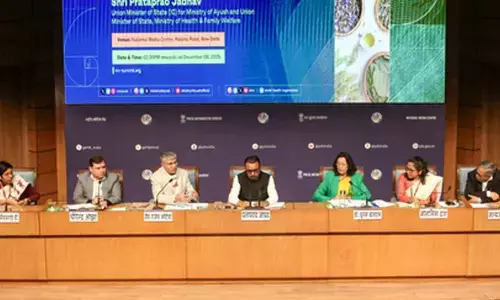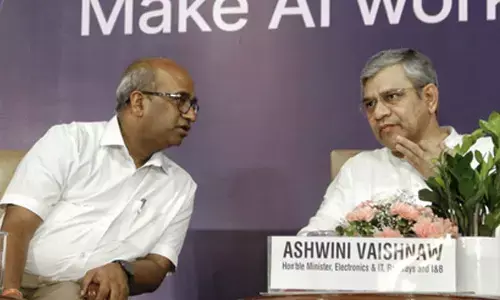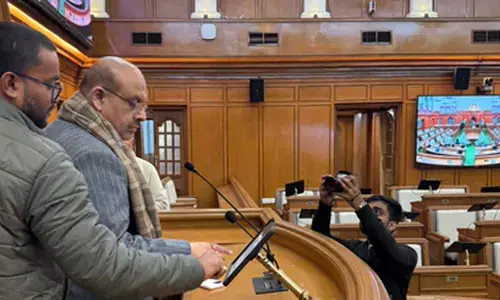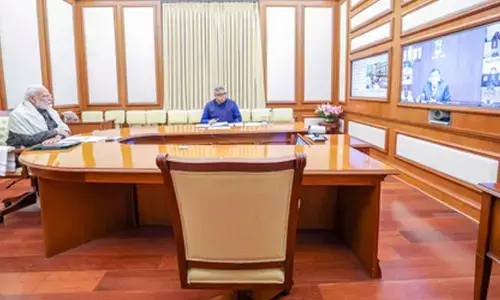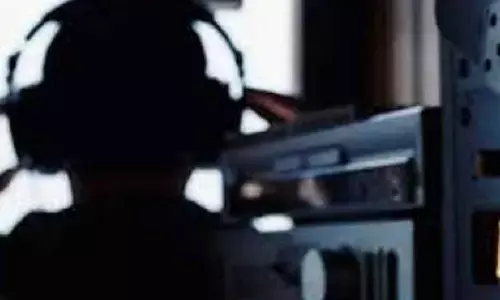Will the voter succumb to cynical tactics of Opposition parties?
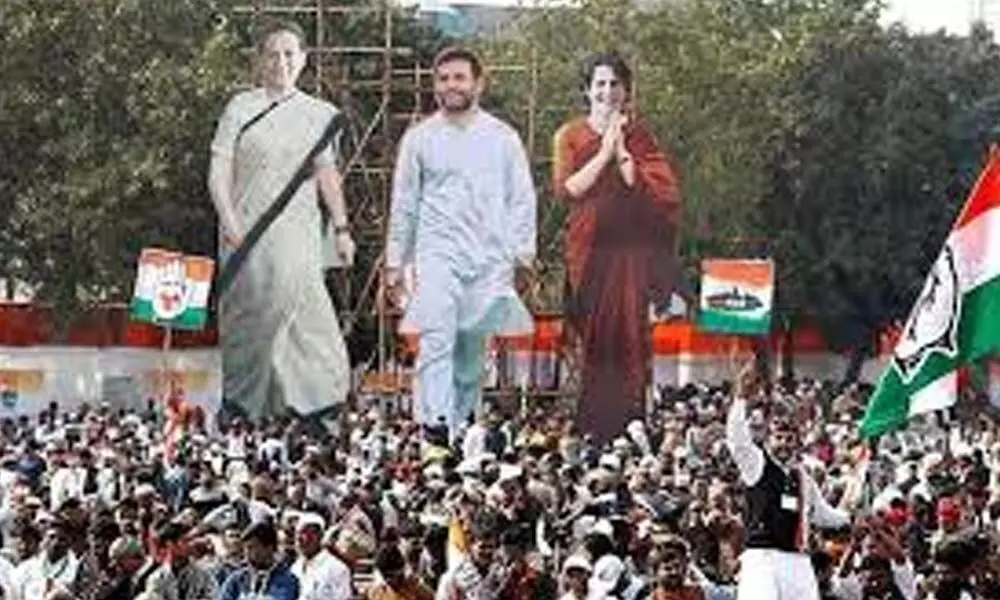
Will the voter succumb to cynical tactics of Opposition parties?
Elections to the Assemblies and the Parliament are two different things.
Elections to the Assemblies and the Parliament are two different things. When elections are combined for both the Assembly and the Lok Sabha there is every reason to believe that local politics have a major say in the outcome of the Parliament election results.
For the States which have such simultaneous elections, priorities of the electorate could not vary much. Generally the party that sweeps the Assembly elections - i.e., when the vote is based on the incumbency factor - also wins the Lok Sabha elections.
In the States where no such simultaneous elections take place, the voters can leisurely evaluate the performance of their own governments and arrive at a conclusion. Rajasthan and Delhi are the best examples of this. The voters in the two States made a clear distinction between these two while voting on 'local priorities" in the previous Assembly elections. There was little confusion for them in segregating the two.
Today, the scenario is not just fragmented but also different from 2017. Both politics and the psyche of the voter have changed a lot. Everything about the elections has only grown bigger. The Assembly elections are no longer 'local elections'.
When Mamata Didi declared 'Khela Hobe' in the recently concluded Assembly elections, she had already set her eyes on a larger picture. When the Bengalis decisively spurned the BJP to give Mamata a third term, she anyway got more ambitious, but the political analysts too began talking about something bigger.
Did Bengal teach a moral to the Opposition keen on defeating Modi? The emphasis should not be ignored here. BJP is rarely mentioned as the rival. It is always an "oust Modi campaign' for them. In addition, the Opposition has grown so insecure facing Modi's onslaught that they only enlarge the picture to secularism, threat to the Constitution, freedom and liberal values.
And so, when the TMC leader began attempting to expand her footprint across the nation a larger debate began in the country. Is it possible for the fragmented Opposition to defeat the BJP decisively once and for all? Is this the right time to experiment towards this end? There was some talk of a Front which never really took off and which will never too.
All this had a collateral effect on the people who began to read the upcoming Assembly elections as decisive for the nation. There was this farmers' agitation going on in the outskirts of Delhi. Entire Opposition threw its weight behind the protests even though the Samyukt Kisan Morcha did not allow it to "politicise" their agitation.
Though the agitation meant that there was a rallying point for the anti-BJP political grouping, it remained fragmented. How to oust the Modi regime became more prominent that the three farm laws against which the agitation was launched and the farmer leaders too carried their agenda to the Opposition camp declaring support and urging voters to cast out the BJP from power.
While the political pot was kept boiling thus by the farmers of Punjab, Haryana and Western UP, an unseemly haste also crept into the Opposition lines which has made them forget the basics of the electoral processes. All ideologies have got subsumed by the hatred towards Modi-Shah, forcing the entire political spectrum to get divided between pro and anti- Modi groups.
Nevertheless, the challenge remained. It is not just a question of who will bell the cat, but also how to go about it. This has encouraged Mamata and Arvind Kejriwal to adopt guerilla tactics to take on the political space of the anti-BJP camps in the States other than their own leading to a chaotic condition. It is an inalienable fact that there is no pan-Indian leader to harness the anti-BJP space shrewdly.
Still, a perception that these upcoming elections could impact 2024 has developed. The hype surrounding the campaigns is not about the incumbency factor. Everything is about Modi now. Will the UP reject Modi and thereby, his protege, Yogi? Will the farmers of Punjab teach a lesson to Modi? Will the Christians of Goa check the further rise of Hindutva forces in the country?
Just, look carefully at the narratives in place now. The talk is more about majoritarianism, exclusivism, threat to democratic and liberal forces and the insecurity of the minorities in a vengeful RSS-BJP ruled country. Should these have been the issues really? Will this not lead to more bitterness among the peoples post-elections whatever might be the outcome?
The problem with the Opposition is that in the process of uniting the anti-BJP vote, it has opened up a Pandora's box of uncertainty. This is not leading to consolidation of the anti-BJP space throughout the country. Secondly, those rehearsing the anti-Modi phrases seem to forget that theirs is a local tourney.
It also throws up a question: why should a voter in UP, Goa or Punjab spurn the BJP because of Modi? If a voter today prefers the BJP it is more because of Modi. At least, this has been ensured by the Opposition. Don't always try to ensnare the voter into the vortex of exaggeration to benefit politically. It does not just pay.
The Indian voter has always been a more discerning voter. But will he be able to vote as in the past weighing the good and the bad of a certain party's governance? This becomes pertinent as our leaders have 'Americanised' our elections with their vitriolic campaigns and venom to the extent that our voters are not even a shade of their past. One only hopes the venom has not percolated down despite the best efforts of some to polarize the voters on unwarranted lines.








